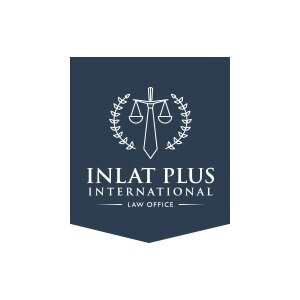Best Tax Lawyers in Latvia
Share your needs with us, get contacted by law firms.
Free. Takes 2 min.
Or refine your search by selecting a city:
List of the best lawyers in Latvia
About Tax Law in Latvia
Tax law in Latvia encompasses a variety of legal rules, obligations, and procedures concerning taxation in the country. These regulations govern how individuals and businesses are taxed, including income tax, corporate tax, value-added tax (VAT), and property tax. The State Revenue Service (Valsts ieņēmumu dienests - VID) is the governmental body responsible for tax collection and enforcement. Latvia's tax system is designed to be compatible with European Union regulations, emphasizing transparency and fairness.
Why You May Need a Lawyer
There are several circumstances in which you might require the services of a tax lawyer in Latvia. These situations include handling complexities in tax filings, seeking advice on tax optimization strategies, dealing with audits or disputes with the State Revenue Service, or navigating the legal aspects of cross-border transactions. A lawyer can also provide guidance on compliance issues to avoid potential fines and penalties. Furthermore, legal assistance is often needed for detailed tax planning, especially for businesses and high-net-worth individuals.
Local Laws Overview
Latvian tax law features several key aspects that are important to understand:
- Personal Income Tax: A progressive tax rate system is in place, with rates ranging from 20% to 31%, depending on income levels.
- Corporate Income Tax: As of the latest update, corporate income tax is levied at a rate of 20%, applicable to distributed profits.
- Value Added Tax (VAT): The standard rate for VAT is 21%, with reduced rates on specific goods and services.
- Property Taxes: Real estate property in Latvia is subject to tax based on cadastral valuation.
- International Compliance: Latvia adheres to agreements that prevent double taxation and comply with OECD guidelines for tax transparency.
Frequently Asked Questions
What is the deadline for personal income tax filing in Latvia?
The deadline for personal income tax filing is generally June 1st of the following year. However, if you are self-employed or derive income from abroad, the deadlines may vary.
Are dividends taxed in Latvia?
Dividends received by Latvian residents are typically subject to a final withholding tax of 20%.
What expenses are deductible from my taxable income?
Common deductible expenses include educational expenses, medical bills, certain insurance payments, and charitable donations, subject to specific conditions.
How does Latvia tax foreign income?
Residents are taxed on their worldwide income but may be eligible for exemptions or credits if a tax treaty is in place to avoid double taxation.
What is a taxpayer’s duty in case of a tax audit?
Taxpayers must provide all requested documentation to the State Revenue Service and ensure their financial records are transparent and complete.
How can businesses benefit from tax incentives in Latvia?
Businesses may benefit from specific tax incentives aimed at stimulating research and development, investment in startup ventures, and energy efficiency projects.
What penalties exist for late tax payments?
Penalties for late tax payments can include fines, interest charges, and in severe cases, legal proceedings by the State Revenue Service.
How is VAT applied to digital services in Latvia?
VAT on digital services is applied based on the location of the consumer within the EU, typically at the standard rate of 21%.
Is there a wealth tax in Latvia?
As of now, Latvia does not impose a specific wealth tax, though property tax is levied based on asset ownership.
Can individuals appeal against tax decisions made by the State Revenue Service?
Yes, individuals have the right to appeal against decisions and actions taken by the State Revenue Service through administrative or judicial processes.
Additional Resources
Here are some recommended resources and organizations for further assistance with tax issues in Latvia:
- State Revenue Service (Valsts ieņēmumu dienests - VID): The primary authority on tax matters in Latvia.
- Latvia's Ministry of Finance: Offers insights into the country's financial regulations and policies.
- Latvian Tax Advisory Association: A professional body providing advisory services on tax matters.
- OECD Guidelines: International tax guidelines which Latvia adheres to, useful for understanding cross-border tax issues.
Next Steps
If you require legal assistance with tax matters in Latvia, consider the following steps:
- Consult a tax lawyer or legal advisor with expertise in Latvian tax law to evaluate your situation.
- Gather all pertinent financial documents and records for a comprehensive review.
- Contact the State Revenue Service for clarification on specific tax matters or to resolve disputes.
- Attend workshops or seminars hosted by local tax advisory associations for more profound insights.
- Evaluate different legal service providers based on reviews, recommendations, and their expertise in local tax laws.
Lawzana helps you find the best lawyers and law firms in Latvia through a curated and pre-screened list of qualified legal professionals. Our platform offers rankings and detailed profiles of attorneys and law firms, allowing you to compare based on practice areas, including Tax, experience, and client feedback.
Each profile includes a description of the firm's areas of practice, client reviews, team members and partners, year of establishment, spoken languages, office locations, contact information, social media presence, and any published articles or resources. Most firms on our platform speak English and are experienced in both local and international legal matters.
Get a quote from top-rated law firms in Latvia — quickly, securely, and without unnecessary hassle.
Disclaimer:
The information provided on this page is for general informational purposes only and does not constitute legal advice. While we strive to ensure the accuracy and relevance of the content, legal information may change over time, and interpretations of the law can vary. You should always consult with a qualified legal professional for advice specific to your situation.
We disclaim all liability for actions taken or not taken based on the content of this page. If you believe any information is incorrect or outdated, please contact us, and we will review and update it where appropriate.
Browse tax law firms by city in Latvia
Refine your search by selecting a city.
















